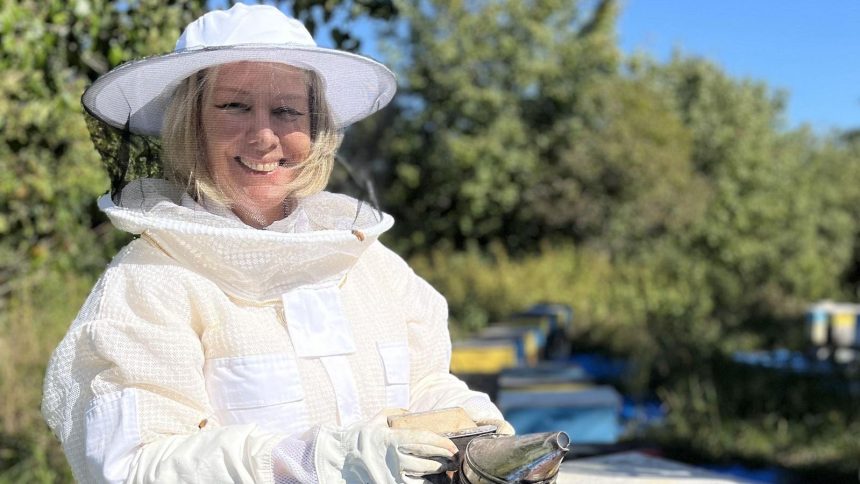Dalan Animal Health, a pioneering biotech company, is at the forefront of a revolution in insect healthcare, developing the world’s first commercially available insect vaccine. Their initial target is the honeybee, a critical pollinator facing devastating losses from a bacterial disease called American Foulbrood. The vaccine, administered orally to worker bees who then incorporate it into the royal jelly fed to the queen, confers immunity to the queen’s offspring. This novel approach circumvents the limitations of traditional vaccines, which rely on antibodies not present in insects, offering a groundbreaking solution to a widespread problem. Dalan’s work holds immense promise not only for protecting honeybee populations but also for the future of sustainable agriculture and global food security.
The impetus for Dalan’s innovation stems from the alarming decline in insect populations globally, a trend with potentially catastrophic consequences for ecosystems and food production. Honeybees, responsible for pollinating a significant portion of the world’s crops, are particularly vulnerable. They face multiple threats, including diseases like American Foulbrood, parasitic mites, pesticide exposure, nutritional deficiencies, and the stress of migratory pollination practices. Current methods for controlling American Foulbrood involve destroying entire colonies and burning hives, a drastic measure that underscores the urgent need for effective preventative strategies. Dalan’s vaccine aims to provide a less destructive and more sustainable solution, safeguarding bee populations and the vital pollination services they provide.
Annette Kleiser, Dalan’s founder and CEO, recognized the potential of insect vaccination while exploring opportunities to commercialize academic research. Her encounter with Dalial Freitak, a biologist and zoologist at the University of Helsinki, led to the formation of Dalan Animal Health and the development of their groundbreaking bee vaccine. Freitak’s research demonstrated that introducing inactivated bacteria to a queen bee could enhance the hive’s disease resistance. Kleiser saw the transformative potential of this approach, securing funding and partnering with Freitak to bring the innovative vaccine to market. The process involves incorporating the vaccine into the queen’s diet, thereby conferring immunity to her offspring.
The vaccine’s rollout faces both excitement and skepticism from the beekeeping community. While the potential benefits are undeniable, the cost of the vaccine, currently around $10 per queen, presents a significant hurdle for beekeepers operating on thin margins. For large commercial operations managing tens of thousands of hives, the expense can be substantial. Beekeepers are eager to see concrete evidence that the vaccine’s benefits outweigh its cost, not only by preventing American Foulbrood but also by improving overall colony health and productivity. Dalan argues that healthier bees translate to greater honey production and pollination efficiency, ultimately offsetting the vaccination cost. However, convincing beekeepers to adopt the technology requires demonstrating a clear return on investment.
Beyond American Foulbrood, Dalan’s research extends to other bee diseases, notably the devastating deformed wing virus. Early trials have shown promising results, with significant reductions in virus levels in vaccinated hives. The success of the bee vaccine has spurred Dalan to explore its applicability to other invertebrates, particularly shrimp. The shrimp farming industry, a multi-billion dollar market, grapples with substantial losses due to disease, often resorting to environmentally damaging chemical treatments. Given the similarities between shrimp and bee immune systems, Dalan believes its vaccination approach holds significant promise for this industry as well. Preliminary trials have shown encouraging survival rates in shrimp vaccinated against white spot syndrome virus, a prevalent and devastating shrimp disease.
Dalan’s vision extends far beyond bees and shrimp, encompassing a future where insect vaccination plays a crucial role in global health and food security. The company envisions applying its technology to combat insect-borne diseases, potentially vaccinating mosquitoes against diseases like malaria and dengue fever. As climate change expands the range of disease-carrying insects, the ability to vaccinate them could become increasingly critical for protecting human populations. This innovative approach to disease prevention could have profound implications for global health, offering a proactive and sustainable solution to the growing threat of insect-borne illnesses. Dalan’s work not only represents a breakthrough in animal health but also embodies a paradigm shift in how we approach disease prevention, offering a glimpse into a future where vaccination extends beyond traditional boundaries, protecting not only humans and livestock but also the vital invertebrate populations that underpin our ecosystems and food supply.



